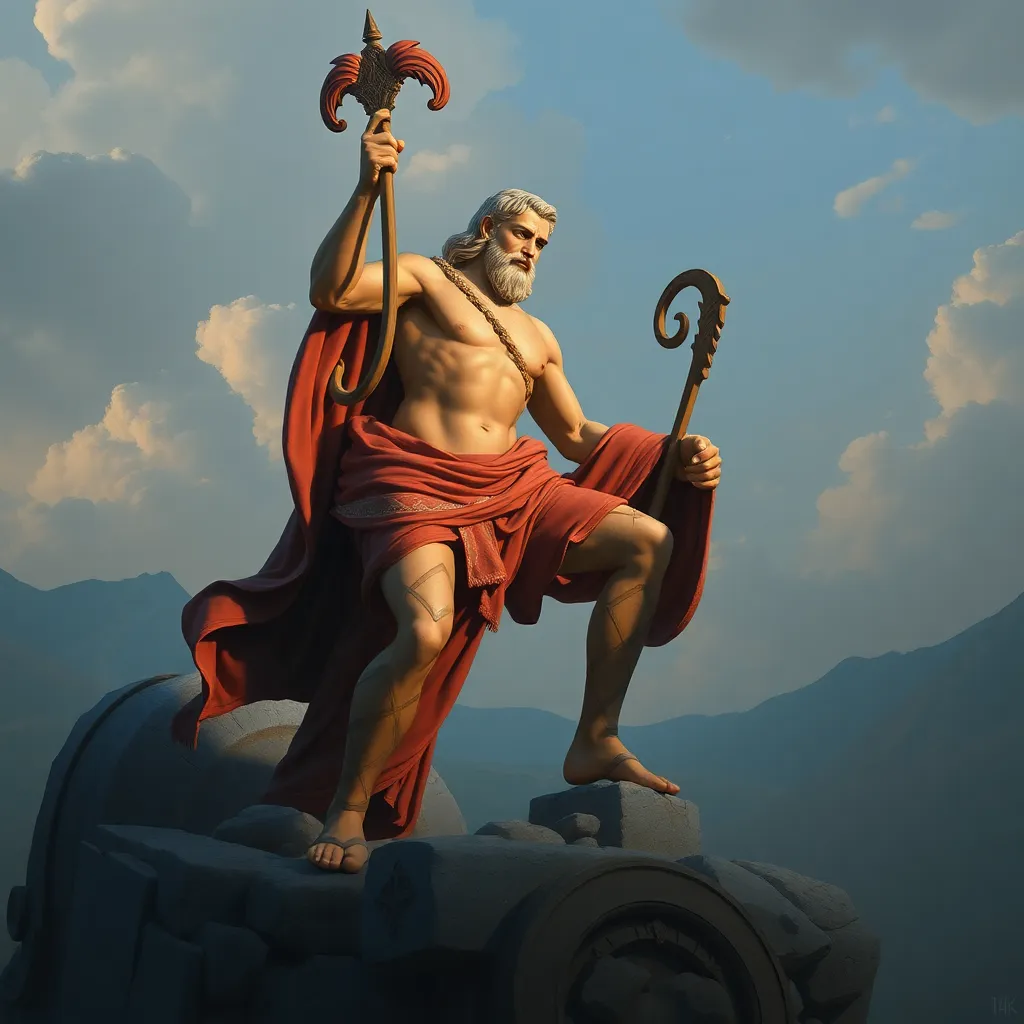Theseus in Art and Literature: How His Story Inspired Generations
I. Introduction
Theseus, a central figure in Greek mythology, is revered as a legendary hero and a symbol of courage, innovation, and identity. His adventures not only captivated the imaginations of ancient Greeks but also laid the groundwork for narratives that resonate through centuries. Theseus’s significance in ancient Greek culture extends beyond myth; he embodies the values and ideals of an entire civilization.
This article aims to explore the enduring influence of Theseus across various artistic and literary expressions, showcasing how his story has inspired generations of creators and thinkers.
II. The Myth of Theseus: An Overview
The myth of Theseus encompasses several key adventures that highlight his heroism and ingenuity. Among his most famous feats are:
- Slaying the Minotaur: Theseus ventured into the Labyrinth to defeat the monstrous half-man, half-bull.
- Uniting Attica: He played a crucial role in consolidating the scattered communities of Attica into a single political entity.
- Defeating bandits and foes: Theseus is known for overcoming various villains, such as Procrustes, and protecting the innocent.
Themes such as heroism, identity, and innovation permeate Theseus’s narratives. His journey from a young man to a king embodies the struggles and triumphs inherent in the human experience. Culturally, Theseus represents the ideals of Athens, symbolizing democracy, civilization, and the fight against chaos.
III. Theseus in Ancient Art
Ancient Greek artists frequently depicted Theseus in pottery and sculpture, capturing the essence of his legendary exploits. These artworks played a vital role in conveying the cultural significance of his myth. Notable examples include:
- The Parthenon frieze, which features scenes of Theseus alongside other Athenian heroes.
- Vases adorned with images of Theseus battling the Minotaur or engaging in other heroic deeds.
Theseus’s representations in visual art often carry symbolic interpretations. He is portrayed as a model of virtue and bravery, embodying the ideals of athleticism and moral fortitude. The imagery associated with Theseus also reflects the values of the society that created it, emphasizing the importance of heroism in the context of civic identity.
IV. Theseus in Classical Literature
Theseus’s story has been explored in various ancient texts, with prominent figures like Plutarch and Ovid providing rich narratives that delve into his character. In these works, Theseus is not only celebrated as a hero but also portrayed with moral complexity:
- Plutarch’s “Parallel Lives” examines Theseus’s virtues and flaws, highlighting his duality as a heroic figure and a flawed human.
- Ovid’s “Metamorphoses” presents the myth with a focus on transformation and identity, exploring the deeper meanings behind Theseus’s actions.
Themes of heroism interspersed with moral ambiguity challenge readers to reflect on the nature of heroism itself. Theseus’s literary portrayals have influenced subsequent literary traditions, inspiring countless writers to explore the hero archetype in diverse contexts.
V. The Renaissance Revival of Theseus
The Renaissance marked a significant revival of interest in classical myths, including that of Theseus. Artists and writers sought to reinterpret these ancient stories through a modern lens. Key works during this period include:
- Shakespeare’s “A Midsummer Night’s Dream,” where Theseus is depicted as a ruler embodying the ideals of reason and order.
- Various paintings and sculptures that reimagined Theseus as a heroic figure within the context of Renaissance humanism.
The impact of humanism during the Renaissance led to a more nuanced portrayal of Theseus, emphasizing his wisdom and leadership qualities, in contrast to the brute strength often highlighted in earlier narratives. This reinterpretation allowed Theseus to resonate with contemporary audiences, reflecting the changing values of society.
VI. Modern Adaptations of Theseus
In contemporary literature and film, Theseus continues to be a compelling character, representing themes of resilience and personal growth. Modern adaptations often reinterpret his story to align with present-day sensibilities. Examples include:
- Films such as “Clash of the Titans” and “Immortals,” which reimagine Greek myths with modern special effects and storytelling techniques.
- Novels and graphic novels that explore Theseus’s adventures from fresh perspectives, often highlighting psychological depth and character development.
The enduring legacy of Theseus in popular culture underscores the timelessness of his story. His journey serves as a metaphor for personal growth, the quest for identity, and the struggle against adversity, resonating with audiences across generations.
VII. Comparative Analysis with Other Mythological Figures
When comparing Theseus with other mythological heroes like Hercules and Odysseus, several similarities and differences emerge. Key points of comparison include:
- Heroism: Like Hercules, Theseus is celebrated for his strength and bravery; however, his focus on intellect and diplomacy sets him apart.
- Journeys: Odysseus’s long journey home contrasts with Theseus’s adventures, which often center around themes of civic duty and leadership.
- Cross-cultural influences: The archetype of the hero is prevalent across cultures, with figures like Theseus illustrating universal themes of struggle and triumph.
These comparisons enhance our understanding of human nature, illustrating how different cultures have interpreted the hero’s journey and the qualities that define a hero.
VIII. Conclusion
Theseus’s impact on art and literature is profound and multifaceted. His narratives have inspired countless artists and writers, reflecting the enduring human fascination with heroism and identity. As we explore Theseus’s story, we recognize its relevance in contemporary society, where themes of resilience, leadership, and moral complexity remain pertinent.
In conclusion, the rich tapestry of mythological narratives, including those of Theseus, invites us to appreciate the depths of human experience and the timeless lessons embedded within these ancient tales. We encourage readers to delve into the stories of Theseus and other mythological figures, exploring the profound insights they offer into our shared humanity.




